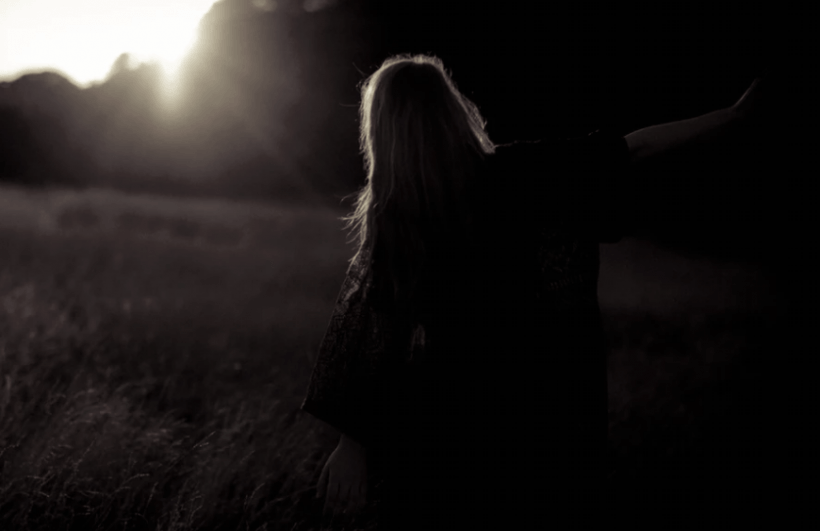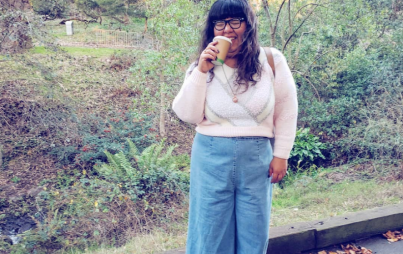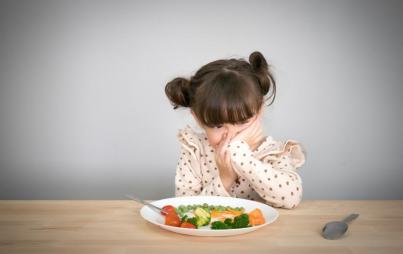
A lot of the diet industry is full of garbage ideas. (Image Credit: Unsplash/Sasha Freemind)
When I was first diagnosed with anorexia ten years ago, I vaguely knew that eating disorders were a feminist issue. But this knowledge basically extended to “women face harmful beauty standards.” That’s part of it, but eating disorders tell you a lot more than just that about the oppression and liberation of marginalized genders.
It was my eating disorder that got me into feminism. It led me to pick up books like The Beauty Myth that articulated how obsessions with food and weight deplete women’s power. Meeting other survivors showed me how strongly eating issues are linked to sexual violence. A huge part of my recovery was noticing the intersections between disordered eating and patriarchy, and finding alternatives to both.
The road to recovery hasn’t been easy, but these discoveries have made it worthwhile.
1. Most “healthy eating” tips are BS.
My eating disorder started out as an effort to be healthy. I ate three small meals and two snacks a day. I followed popular nutritional advice, like avoiding carbs and fats and packing in fruits and vegetables. And you know where that got me? Clinically underweight with insomnia, no period, and constant hunger. It’s by actually eating what I’m hungry for, which probably looks like many fitness magazines’ nightmare, that I’ve gotten my physical and mental health back. What the media teaches us about food is hugely influenced by the advertising industry, oppressive beauty standards, and fatphobia, so I take it with a grain of salt.
2. BMI is BS, too.
Early in my recovery, I reassured myself that I only had to gain enough to be at my “ideal” weight. But when I gained weight beyond that point despite my best efforts, I had to realize not everyone is healthiest at the weight the BMI chart claims is perfect. In reality, there is no “ideal weight” except the weight that’s ideal for you, which is the weight your body naturally settles at.
3. We can sense sexual objectification before we even learn about it.
While the dominant narrative is that women develop eating disorders to be beautiful, mine served the opposite function. I first experienced sexual harassment at 13, and I blamed my developing body. Weight loss felt like a way to escape such objectification.
4. Sexual liberation can also liberate us from body hatred.
The way out of my fear of being an object wasn’t eschewing sexuality altogether; it was learning I could also be a subject. The only version of female sexuality I’d learned was one that involved being a passive receiver or rejecter of men’s desires. Learning my own desire and pleasure were just as valid, helping me appreciate what my body could do for me, not the male gaze.
5. Eating issues can also relate to gender identity.
Another common cause of body insecurities we don’t talk about is the expectation that certain bodies indicate certain “masculine” or “feminine” traits. As someone with a body perceived as female, I knew I was expected to be maternal, soft, and beautiful. That wasn’t how I saw myself, which led me to want to change my body. I didn’t realize this until recently because I wasn’t taught that I had options aside from identifying as a feminine woman. I now know that no matter how people perceive it, my body doesn’t have to mean anything about me.
6. And they have a shit ton to do with misogyny.
It’s no coincidence that twice as many women as men have eating disorders. Our culture has a long history of defining women by their bodies to thank for this. Since ancient times, the female body has represented sexuality, gluttony, and all the physical desires we fear. The ideal of female asceticism actually arose during the Victorian era to exculpate women from this reputation. Eating disorders can do everything from attaining this standard of femininity to making someone the “perfect” object to resisting objectification. They’re an internalization of the physical and emotional violence inflicted upon us for centuries.
7. But it’s not just about women.
Beauty standards are racist, classist, and fatphobic. They hurt all groups, including men. Eating disorders are not just a “women’s issue” — they reflect the many ways we value some bodies over others. Getting fired up about all this provides fuel when my recovery motivation is lacking.
8. Body positivity isn’t for everyone.
Body positivity presented itself to me as a great alternative to diet culture and effed up beauty standards. And it was far preferable! But it also didn’t quite suit me. Many body-positive hashtags and advertising campaigns are geared toward getting women to feel good about how they look, while I want to devote less attention to my appearance altogether. Rather than embrace my reflection, I avoid mirrors. In other words, I prefer body neutrality to body positivity. And everyone should have that option. In addition to telling women they can be sexy at any size, we should let them know they don’t have to be sexy.
9. True health is connecting to your intuition.
When you’re underfed, overfed, dehydrated, sedentary, or emotionally unhealthy, your body’s and brain’s signals get all out of whack. But at our best, we know what we need. The more I honor what my body wants, the louder it speaks, and the closer what I want gets to what I need. I crave and enjoy the foods that fuel me, fall asleep when I’m tired and wake up when I’m energized and want to run and jump and play. Health, by my definition, is returning to the state we’re born in, with so much innate wisdom that we don’t need external guidelines.
10. Transforming your relationship with food transforms your whole life.
The crap women deal with around food is the crap they deal with around everything. The same way we’re taught to restrict our food intake, we’re taught to restrict our sexuality and our self-expression. We’re taught to be “small” — to not make waves. It was when I began the ongoing process of letting my body eat what it wanted that I also started loving and sleeping with who I wanted, saying how I felt, and having the adventures I craved. A nutritionist once told me anorexia is a way of constantly saying “no.” When you start saying “yes” to food, other “yes”es trapped inside you start flooding outward and blossoming.








